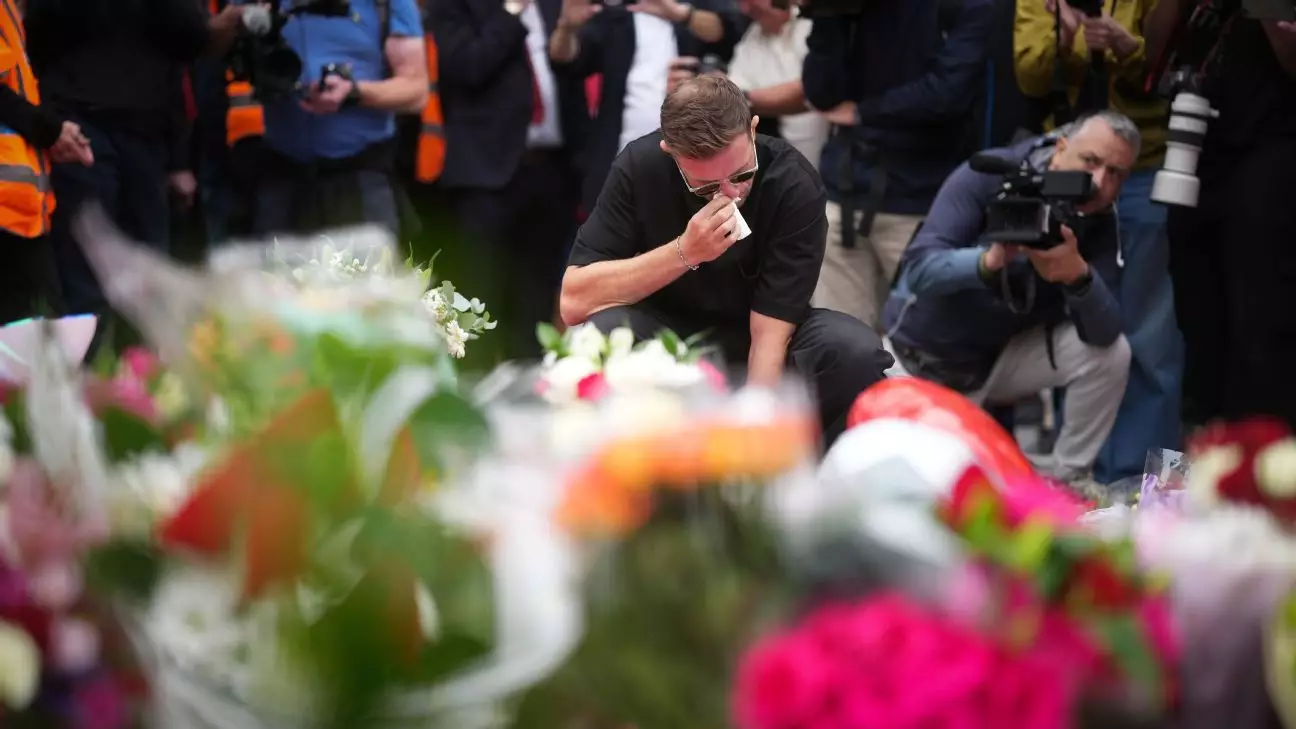In an era where sports stars often become larger-than-life figures, the tragic death of Diogo Jota sends shockwaves beyond the football community. His untimely demise at just 28 years old, coupled with his brother’s loss in the same accident, underscores a brutal reality — life remains unpredictable and fragile, regardless of success or fame. Despite his shining career, Jota’s passing serves as a stark reminder that no amount of talent can shield us from the randomness of fate.
The grief experienced by Jota’s teammates is visceral, not merely rooted in sporting loss but in the profound human tragedy of unfulfilled futures and shattered families. The emotional reactions from stars like Jordan Henderson and Virgil van Dijk highlight something essential: behind the jerseys and headlines are real people, vulnerable and deeply affected by personal tragedy. Henderson’s tears and Van Dijk’s words emphasize that the bonds forged in the crucible of competition are often rooted in genuine friendship and human connection. Their responses reveal that in the fiercely competitive world of professional sports, it is often the personal, emotional ties that resonate most powerfully amidst tragedy.
What strikes me profoundly is the rawness of the testimonies — the grief, disbelief, and helplessness feel almost universal. The passing of a young athlete and his brother challenges the romantic narrative of relentless progress and achievement. It forces us to confront the uncomfortable truth: life can be taken away in an instant, often without warning or justice. That Jota had recently married and become a father makes his loss even more heart-wrenching, transforming public mourning into a deeply personal mourning for a family left devastated by circumstances beyond their control.
The Myth of Invincibility in Modern Sports Culture
In our culture obsessed with athletic prowess and heroism, it’s tempting to view sports figures as invulnerable. The media often turns them into symbols of resilience, strength, and perseverance. Yet, Jota’s tragic death brutally exposes the myth of invincibility. No matter how extraordinary an athlete’s skills, fame does not confer immunity from the unpredictability of life. His death underscores the importance of humility and human fragility — qualities often overlooked in our fixation with success.
There’s also a broader societal implication here: we tend to project a certain permanence onto our public figures, assuming that their lives are protected by wealth, status, or physical fitness. Jota’s family, including his young children, is a stark reminder that those perceived as privileged are just as vulnerable as anyone else. Society must re-evaluate its collective attitude — celebrity or not, human life is inherently precious and fragile.
Furthermore, this tragedy exposes a failure of societal systems to prevent such accidents or provide adequate support for those affected. While investigations will attempt to clarify the circumstances of the crash, it leaves lingering questions about safety and responsibility. The family’s loss, compounded by the cruel randomness of the crash, highlights a societal need to prioritize human safety over superficial pursuits of progress or entertainment.
A Call for Empathy and Genuine Human Connection
What is most compelling about these outpourings of grief is the reminder that empathy must surpass superficial admiration. These tributes from teammates and the club’s hierarchy demonstrate that genuine human connection endures beyond the pitch. Henderson’s heartfelt expression about shared laughter and friendship reveals that personal bonds are what sustain us during times of despair.
In a world increasingly divided by political and cultural disagreements, Jota’s death calls us to a different focus: compassion. His family’s immense loss is not an isolated event but a collective trauma that urges us to reconsider how we support each other in times of grief. True empathy involves acknowledging pain, offering support, and understanding that tragedy can strike anyone, anywhere.
The reactions from Mohamed Salah and Trent Alexander-Arnold underscore this point. They do not merely mourn as colleagues but as friends who truly valued Jota’s presence in their lives. Their words transcend the sport, venturing into a shared human experience — one that reminds us that behind every spotlight, there are personal stories of love, loss, and hope.
This incident should prompt a broader reflection: how do we treat those who bring us joy, inspiration, and entertainment? Are we prepared to stand by them during their darkest hours? The answer must be yes, for a society that values genuine human connection above fleeting fame is one that recognizes the true worth of life itself.



Leave a Reply